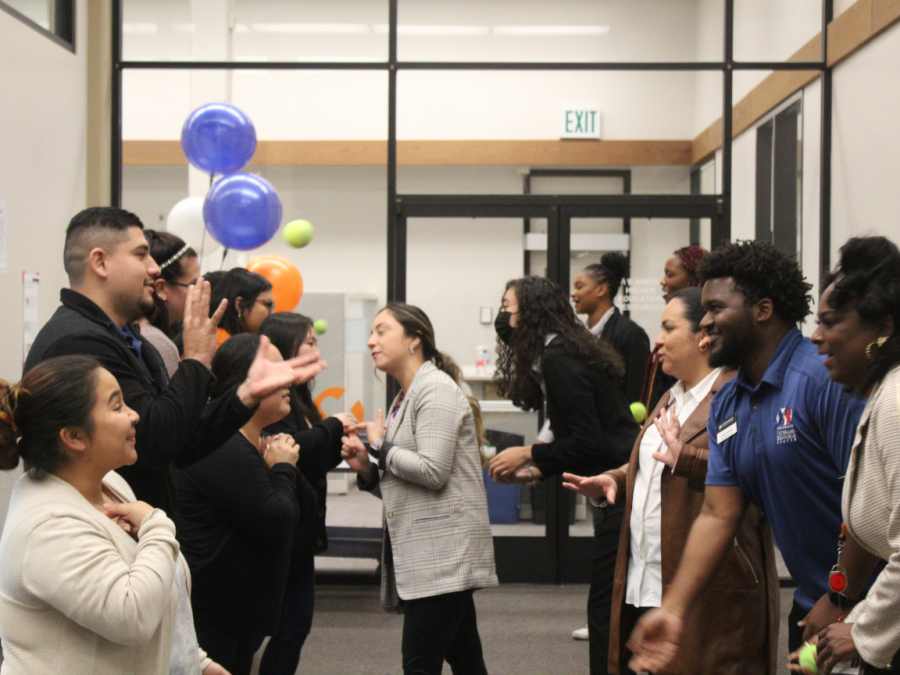CRC celebrates Hmong New Year
CRC celebrated Hmong New Year in the library on Wednesday. Attendees of the event playing a traditional Hmong game called “Pov Pob.”
The Center for Inclusion and Belonging hosted an event celebrating the Hmong New Year with a guest speaker to embrace the Hmong heritage on Wednesday.
This event was organized by Cosumnes River College’s organization for Asian, Pacific Islander and Desi Americans called APIDA HAWKS. Sacramento City Council Member Mai Vang was the featured guest speaker at the event.
“The new year actually occurs during the end of the rice harvest season in Laos and Southeast Asia,” Mai Vang said. “It happens in November and December, so that’s the reason some Hmong folks in the United States celebrate Hmong New Year during that time.”
Mai Vang talked about the history of the Hmong culture. She said there are more than 35,000 Hmong people in the Sacramento community.
As part of the cultural tradition, Mai Vang said that in every harvest season during the fall, she and the Hmong community celebrate Hmong New Year.
“It’s something I look forward to every year, to dress up in Hmong clothes, eat Hmong food and really just celebrate our ancestors and our family,” Mai Vang said.
Mai Vang said she had the opportunity to speak at this event because CRC counselor Paolo Soriano asked her to. Mai Vang said that she and Soriano had co-taught at Sacramento State in the department of Ethnic Studies and CRC is a part of the same college district as her.
After she was done speaking, Mai Vang had a Q&A with the attendees of the event.
“Any opportunity I get to speak in the community, especially in my district, I always want to make sure I do that,” Mai Vang said.
Jessica Vang, success coach for APIDA HAWKS, spoke about a Hmong ritual called “Hu PLIG,” which means “Soul Calling” in Hmong. The ritual involves a shaman tying white strings around individuals to bring luck and wealth, according to an article on the Religions in Minnesota website.
Some of the event’s attendees engaged in a game called “Pov Pob” (“Ball Toss”), which Jessica Vang said is a game to “catch a lover.” But Jessica Vang said for this event, the game’s custom was altered.
“Back in the old days when our parents were still in Laos and Thailand, they used that tactic to catch a husband or a wife,” Jessica Vang said. “That custom changed over the years and us Hmong-Americans switched things up to instead of targeting finding a lover, it should be casual to just getting to know one another.”
Raul Pasamonte, director for APIDA HAWKS, said that the event was organized because the Asian community isn’t recognized a lot and that they want to make sure to “highlight those students.”
Because this was an inaugural event at CRC, Pasamonte said that APIDA wants to highlight other Asian and Pacific Islander cultural holidays as well in the future.
“I think this event went well overall,” Pasamonte said. “We had a lot of people come in the first hour.”

